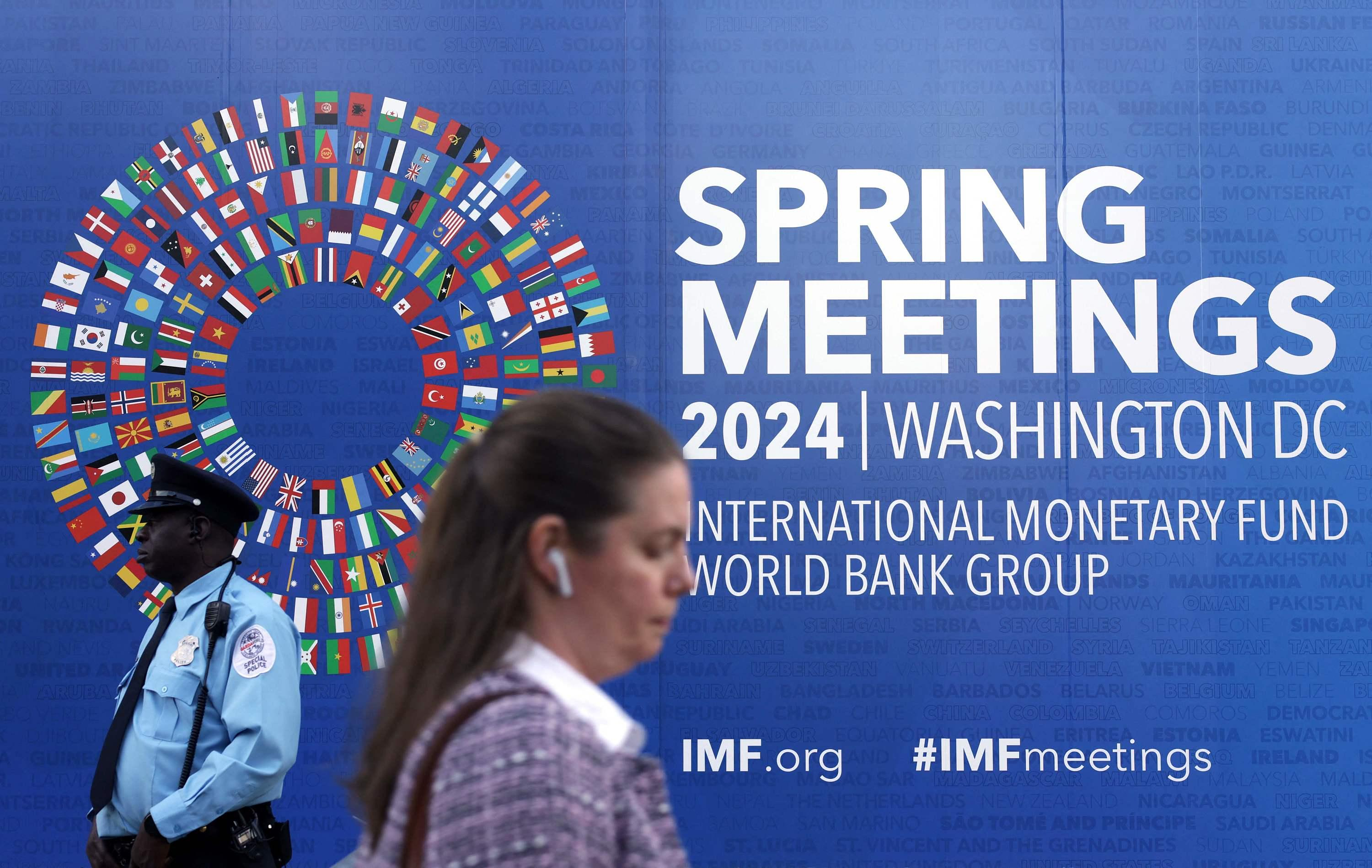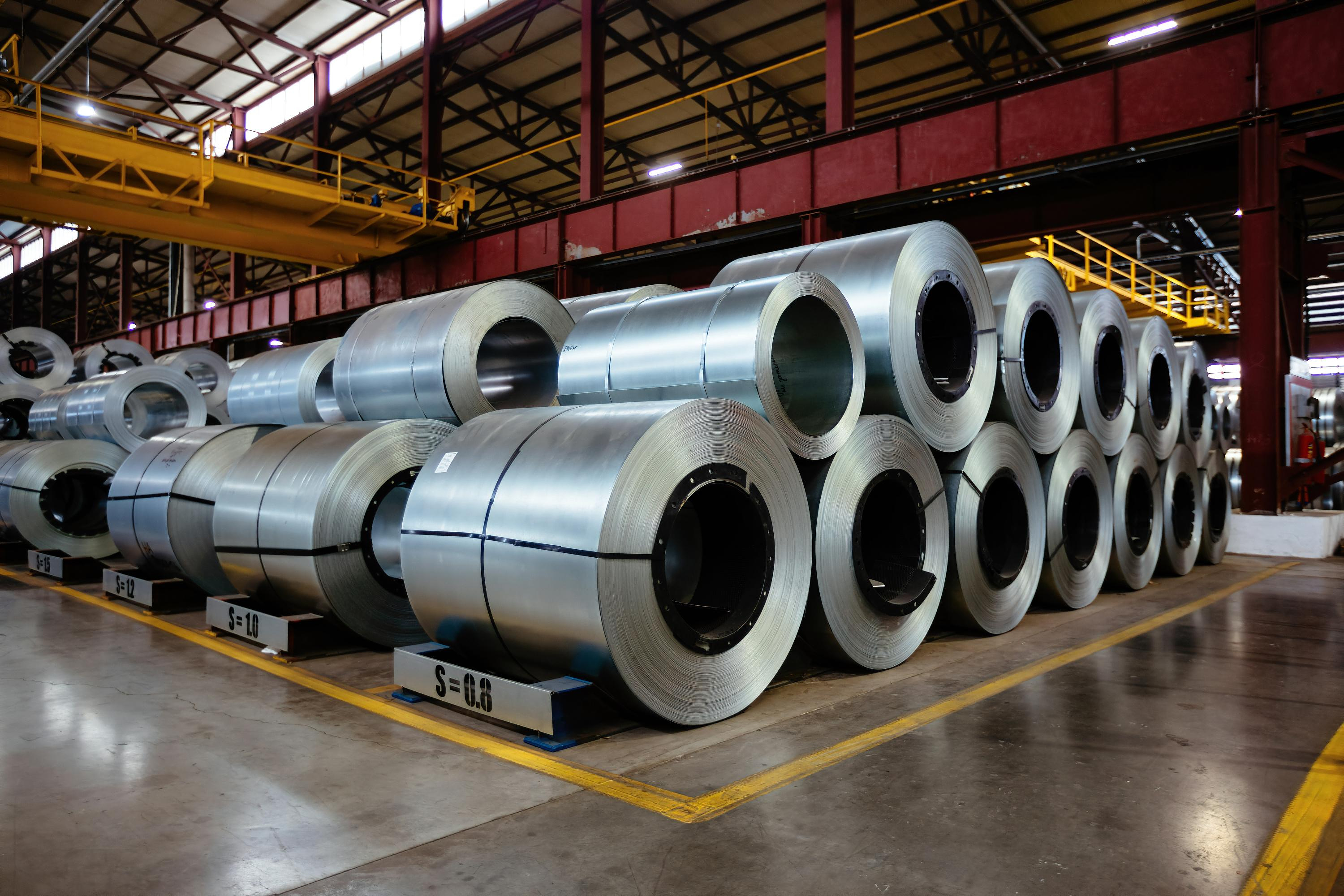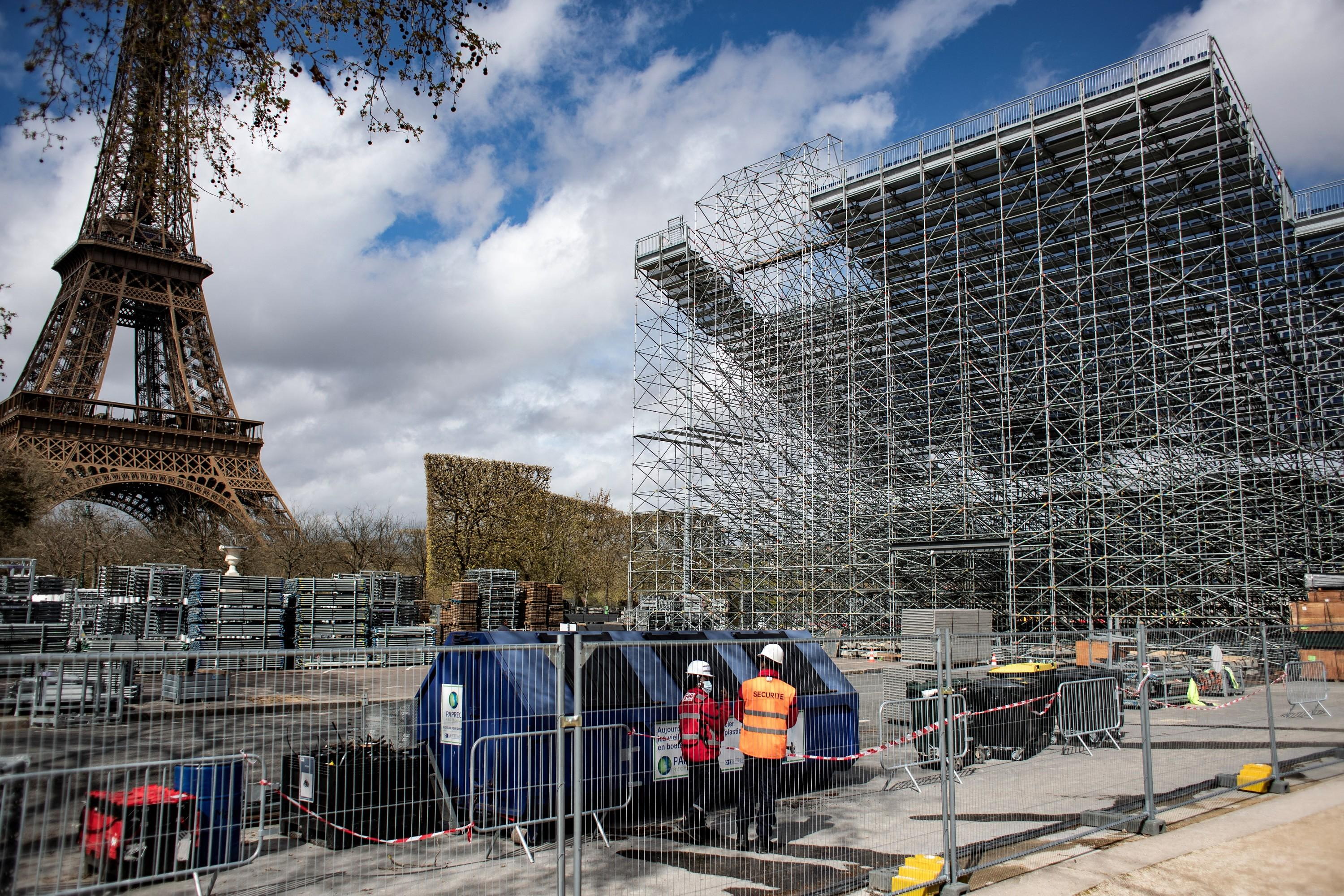Hamburg punks would probably not make the successor model regular Sylt visitors. If they were able to travel to the North Sea island with the nine-euro ticket within their budget, the 49 to 69 euros, which according to the federal government should cost a nationwide valid monthly ticket for local public transport, should run counter to their cost awareness.
But even for some wealthy people who prefer public transport, it would not be a big savings if the traffic light could persuade the federal states to supplement the federal government's planned 1.5 billion euros with the same amount to finance the successor model. Because this would not or only hardly relieve many residents of central metropolitan areas financially.
Anyone who lives and works in the Munich city area usually only needs a monthly pass at the regular price of 59.10 euros. So the new ticket would only bring savings in the politically unlikely event that it would be available for 49 euros. There would also be little or no relief for the many Berliners who only need the environmental subscription for zones A and B on a daily basis. You pay a good 63 euros for it.
With the new ticket, these Berliners and Munich residents would certainly have the additional benefit of being able to use it to travel in Leipzig or on Lake Constance. But how much they would save by doing so would depend on individual tripping habits. This shows that the new ticket with the planned overcoming of the previous transport association limits would be attractive if public transport were also used outside of the residential area.
It would bring big savings to those who have to travel long distances to work. Also in some rural areas. From the small town of Dollnstein in the Altmühltal with 2,700 inhabitants, you can take the regional train in just under half an hour to the train station at the Ingolstadt Audi plant, which is around 30 kilometers away. The trains run every hour, and there is only a rest period between 11 p.m. and 5 a.m.
The regular monthly ticket costs 234 euros. Here the planned ticket would be a brilliant relief. It would not make a car superfluous for Dollnsteiners for other everyday needs. But they might consider getting rid of the second Audi in the household.
But it is completely different where you have to rely on slow buses due to the lack of a railway. They are practically unusable over longer distances in everyday life. And if you use the sparse bus service between Schmallenberg and Bad Fredeburg, seven kilometers away in the Hochsauerland district in North Rhine-Westphalia, you pay 65.70 euros for the monthly pass.
"You don't fundamentally change your mobility behavior for three months," says Lars Wagner, spokesman for the Association of German Transport Companies. At the end of the 9-euro ticket, he takes stock in the WELT interview.
Source: WORLD
So the planned ticket would hardly be a relief. And here it is also unattractive to be able to use public transport, for example in the Ruhr area. Because for that you would have to chug the bus to Altenhundem or Meschede in order to then approach Dortmund with Regios.
The fact that the new ticket offers hardly any savings or benefits in such areas means that the traffic light plan would not increase the attractiveness of the entire public transport system, but only that of rail transport that is easily accessible for the citizens. And this all the more, the longer the distances are: Commuters currently have to pay around 190 euros for a monthly pass between Frankfurt am Main and Wiesbaden, and around 240 euros between Cologne and Düsseldorf. For them, the planned ticket would be a first-class savings program.
Anyone who commutes is employed, earns money and can be assigned to the middle class in a broader sense. So while they would benefit greatly if there were sufficient rail services - especially long-distance commuters in commuter belts and metropolitan regions - the planned ticket would not bring any financial relief for people on low incomes even in areas with good rail transport.
In Berlin, the Berlin-Ticket S, which is subsidized by the Senate, costs 27.50 euros for Hartz IV recipients in tariff zones A and B, the semester ticket for students in the larger areas A, B and C costs the equivalent of a good 33 euros a month. These groups could not save any more with the new ticket. Unless they were often in other areas and could take advantage of the nationwide validity of a 49/69 euro ticket.
The situation is similar with the 365-euro youth ticket in Baden-Württemberg, where the state spends 100 million euros a year to enable young people, trainees and students up to the age of 27 to use public transport nationwide for a good 30 euros a month. The traffic light plan would not bring any savings there either.
This has a political dimension: Baden-Württemberg's Minister of Transport, Winfried Hermann, and Berlin's Senator for Transport, Bettina Jarasch (both Greens), point out in the current debate about state participation in the traffic light plan that states and local authorities have already paid hundreds of millions for tickets for the needy and students spent.
But that's not the only thing making the upcoming federal-state negotiations more difficult. In addition, to the annoyance of Federal Transport Minister Volker Wissing (FDP), the federal states are demanding, due to increased energy and personnel costs, that the federal government increase the regionalization funds to support public transport in 2022 and 2023 by 3.15 billion euros and then by 1.5 billion euros annually elevated.
According to the Basic Law, the federal government must pay for these regionalization funds. But only for rail traffic. Now, of course, the traffic light plan for the future ticket only makes sense with the railway – and thus offers the federal states a reason to demand more rail transport funding from the federal government.
"Kick-off Politics" is WELT's daily news podcast. The most important topic analyzed by WELT editors and the dates of the day. Subscribe to the podcast on Spotify, Apple Podcasts, Amazon Music, among others, or directly via RSS feed.

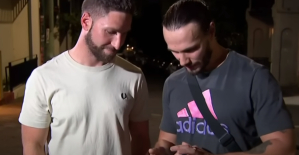 Knife attack in Australia: who are the two French heroes congratulated by Macron?
Knife attack in Australia: who are the two French heroes congratulated by Macron? Faced with an anxious Chinese student, Olaf Scholz assures that not everyone smokes cannabis in Germany
Faced with an anxious Chinese student, Olaf Scholz assures that not everyone smokes cannabis in Germany In the Solomon Islands, legislative elections crucial for security in the Pacific
In the Solomon Islands, legislative elections crucial for security in the Pacific Sudan ravaged by a year of war
Sudan ravaged by a year of war Covid-19: everything you need to know about the new vaccination campaign which is starting
Covid-19: everything you need to know about the new vaccination campaign which is starting The best laptops of the moment boast artificial intelligence
The best laptops of the moment boast artificial intelligence Amazon invests 700 million in robotizing its warehouses in Europe
Amazon invests 700 million in robotizing its warehouses in Europe Inflation rises to 3.2% in March due to gasoline and electricity bills
Inflation rises to 3.2% in March due to gasoline and electricity bills Olympic Games-2024: which professions are likely to strike during the competition?
Olympic Games-2024: which professions are likely to strike during the competition? Pizzas sold throughout France recalled for “possible presence” of glass debris
Pizzas sold throughout France recalled for “possible presence” of glass debris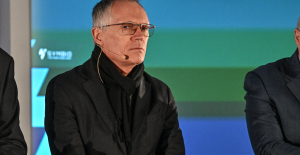 “As for a football player, there is a contract”: Carlos Tavares defends his remuneration of 36.5 million euros
“As for a football player, there is a contract”: Carlos Tavares defends his remuneration of 36.5 million euros Stellantis: shareholders validate the controversial remuneration of Carlos Tavares
Stellantis: shareholders validate the controversial remuneration of Carlos Tavares Dune 3 will be the last film of Denis Villeneuve's adaptation
Dune 3 will be the last film of Denis Villeneuve's adaptation Shane Atkinson, humble disciple of the Coen brothers
Shane Atkinson, humble disciple of the Coen brothers Outcry from publishers against the authorization of advertising for books on television
Outcry from publishers against the authorization of advertising for books on television Eddy de Pretto celebrates his “last party too many” at the Olympia
Eddy de Pretto celebrates his “last party too many” at the Olympia Skoda Kodiaq 2024: a 'beast' plug-in hybrid SUV
Skoda Kodiaq 2024: a 'beast' plug-in hybrid SUV Tesla launches a new Model Y with 600 km of autonomy at a "more accessible price"
Tesla launches a new Model Y with 600 km of autonomy at a "more accessible price" The 10 best-selling cars in March 2024 in Spain: sales fall due to Easter
The 10 best-selling cars in March 2024 in Spain: sales fall due to Easter A private jet company buys more than 100 flying cars
A private jet company buys more than 100 flying cars This is how housing prices have changed in Spain in the last decade
This is how housing prices have changed in Spain in the last decade The home mortgage firm drops 10% in January and interest soars to 3.46%
The home mortgage firm drops 10% in January and interest soars to 3.46% The jewel of the Rocío de Nagüeles urbanization: a dream villa in Marbella
The jewel of the Rocío de Nagüeles urbanization: a dream villa in Marbella Rental prices grow by 7.3% in February: where does it go up and where does it go down?
Rental prices grow by 7.3% in February: where does it go up and where does it go down? Europeans: the schedule of debates to follow between now and June 9
Europeans: the schedule of debates to follow between now and June 9 Europeans: “In France, there is a left and there is a right,” assures Bellamy
Europeans: “In France, there is a left and there is a right,” assures Bellamy During the night of the economy, the right points out the budgetary flaws of the macronie
During the night of the economy, the right points out the budgetary flaws of the macronie Europeans: Glucksmann denounces “Emmanuel Macron’s failure” in the face of Bardella’s success
Europeans: Glucksmann denounces “Emmanuel Macron’s failure” in the face of Bardella’s success These French cities that will boycott the World Cup in Qatar
These French cities that will boycott the World Cup in Qatar Dortmund-Atlético: two months before the Euro, Griezmann warms up the engine
Dortmund-Atlético: two months before the Euro, Griezmann warms up the engine Football: Bernd Hölzenbein, 1974 world champion, died at 78
Football: Bernd Hölzenbein, 1974 world champion, died at 78 'Everything comes to an end': Surfing legend Kelly Slater moves closer to retirement
'Everything comes to an end': Surfing legend Kelly Slater moves closer to retirement Athletics: the victory of a transgender athlete causes controversy in the United States
Athletics: the victory of a transgender athlete causes controversy in the United States




